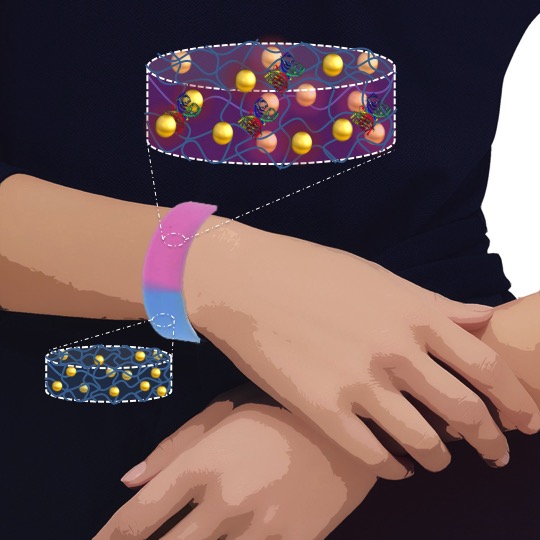Description of the activity
Over the last decades, optical biosensors based on nanoparticles (NPs) have obtained increasing interest since they allow the screening of a wide variety of biomolecules with high specificity, low limits of detection, and great sensitivity. Among them, flexible optical platforms can adapt to non-planar surfaces, suitable for in vivo and real-time monitoring of human diseases or food safety. We focus on the combination of in house synthesized plasmonic NPs with the appealing properties of Poly(ethylene) glycol diacrylate (PEGDA). PEGDA, widely exploited in our group for microneedles fabrication, is an excellent matrix for the entrapment of biomolecules and provides chemical and mechanical stability to gold NPs. Therefore, we have recently proposed a rapid, low-cost, and large-scale technique for the fabrication of 3D plasmonic nanocomposites with highly reproducible optical signals. The proposed platform exploits high tunability of PEGDA hydrogel mesh size and has been already applied to different optical sensing mechanisms. Our proposed platforms are leading to promising results, which are boosting our work towards the development of a point-of-care (POC) testing device for healthcare and food monitoring.

Involved personnel
L. De Stefano | P. Dardano | I. Rea | S. Dello Iacono | B. Miranda | V. Nocerino
National and International Collaborations
University of Naples “Federico II”
Materias s.r.l.
Instrumentation/facilities
Functional nanomaterials and interfaces Lab
Optical characterization and biosensors Lab
Cleanroom facilities
